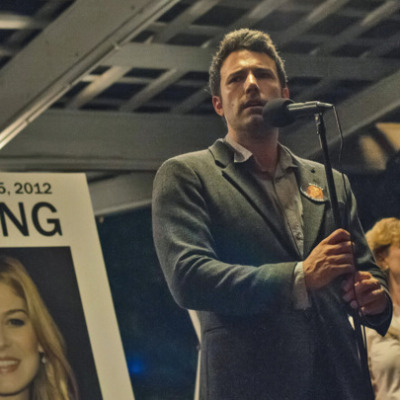Kill the Messenger is the kind of movie that Jeremy Renner has been waiting for. Since his breakthrough role in The Hurt Locker, for which he received an Academy Award nomination, it's been clear that he is the kind of actor who could sink his teeth into the right role and draw blood. Kill the Messenger should have been that film. It is based on Nick Schou's Kill the Messenger and Gary Webb's Dark Alliance and the author of the latter is resurrected in the film by Renner. In the late 90's, Webb, a California journalist, uncovered a link between the influx of crack cocaine into south central Los Angeles, the ongoing war in Nicaragua, and certain parties in the CIA affiliated with both.
The film gets off to a promising start, as we are introduced to the character of Gary Webb. He is a family man, as well as being a very hard working and talented writer. Renner plays the character beautifully, inhabiting both the gentleness of the man as a father figure, and his unstoppable, almost manic determination to get to the bottom of the story that suddenly presents itself to him. Other performances are also of a high standard, particularly the always-lovely Rosemarie DeWitt as Webb's wife Susan, and Paz Vega's all-too-brief appearance as Coral Baca, the girlfriend of a drug kingpin who first brings the conspiracy to Webb's attention. Coral's unfortunately brief time in the film is emblematic of its first flaw; characters - all of them fascinating in their own way - come and go never to return, making the film muddled and frustrating.
Of course, that's the nature of the investigation that Renner's character is undergoing- he is simply following a line of questioning through a string of people - but in terms of effective filmmaking, it makes for sloppy pacing. The mystery at the centre of the film is very intriguing, at least while it stays a mystery, but once things start to become clearer, the film becomes less and less engaging. The film sags almost fatally in its second act, with the persecution of Webb by the authorities seeming routine and quite predictable. The parade of CIA agents that take on Webb and mutter vague threats toward him are faceless and dull. Webb is presented as an unequivocal hero, his veracity never questioned to the point where even a sub-plot that attempts to humanise him through the re-emergence of a mistake from his past fails miserably.
That's the main issue with this film. It is so intent on turning Webb into an absolute hero that it becomes a cliché. He is forced into the role of the "badass," walking into his office to the sound of blaring guitars, dressed in an effortlessly stylish manner, bravely walking into a Los Angeles ghetto in aviator shades, and even given his own "getting down to business" montage set to "Know Your Rights" by The Clash. Even giving his usual excellent performance, Renner can't do much to overcome a screenplay this tasteless. The outcome of the film should be tragic, but it only becomes so when the film ends with footage of the real Webb playing with his children, rather than the cipher presented as the film's central character.
At one point, Michael Sheen's character Fred Weil states that some stories are "too true to tell." That may just be the case with Kill the Messenger. This is the kind of material that would work best as a documentary, but forced into the mould of a conventional narrative film, it becomes dull. It attempts to make a hero out of its central figure, but the story it tells lacks urgency. Even a scene in which Webb is forced into action by a lurking figure outside his home is flaccid and forgettable, because the film fails to create any tension or real drama.
There are a lot of negative points to Kill the Messenger, but it's not all bad. The dialogue is often quite snappy, with well-timed comedic relief that does not seem forced, but folds naturally into the flow of conversation, delivered with impeccable timing by the cast. The entire cast does an admirable job with the material with which they are provided, and that material, even if it is not executed that well by the screenplay and direction, is a refreshingly complex and intriguing change of pace from the subject matter of other high-budget, high-visibility films of recent years. Even small touches like period-appropriate technology and costumes (it's almost worth seeing for a heinously 90s outfit that Paz Vega pulls off with aplomb) make it clear that this is a film made with care and talent, even if the end result is so unfortunately unbalanced.


